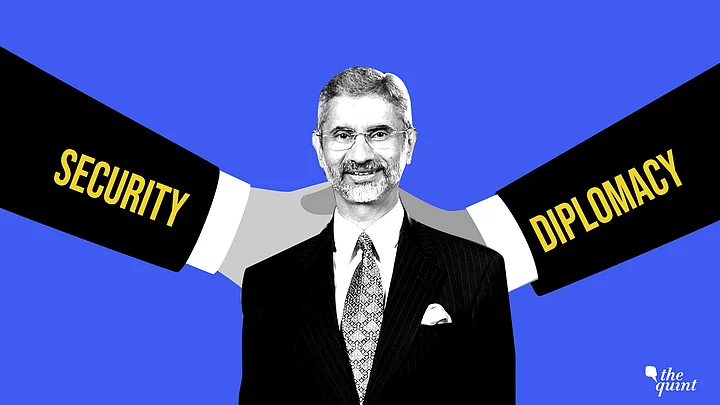The Modi government’s new cabinet appointments are obviously of interest to a great many people not only in India, but also in the region and outside in terms of signalling the direction that the new dispensation is likely to take. Nowhere is this more critical than in the area of foreign policy.
The appointment of Foreign Secretary Subrahmanyam Jaishankar will therefore be generally welcomed by major powers as a positive development, since they will be dealing with a man who knows his business and has learnt along the way.
They will equally realise that as a former foreign secretary with zero political base, he is there because of the trust factor from the top. That is a winning combination – expertise, and the backing of the man who counts.
Many eulogies will be written about the new Foreign Minister, most of them well-deserved. This article focuses on only on the one aspect of his thinking that is central to how India conducts its foreign policy.
In an interaction with a Think Tank in April, Mr Jaishankar had outlined some of his thoughts, where he warned against an ‘immutable’ foreign policy that ignored the reality of a highly dynamic international environment.
Put simply, foreign policy practitioners had to chop and change all the time, not just using all levers available, but also taking up far wider issues than before. In that, he included the ‘securitisation of foreign policy’, a statement that would have had his predecessors throw up their hands in horror.
The Ministry of External Affairs, with some brilliant exceptions, been very ‘immutable’ indeed, wedded to precedent and protocol in equal measure. Security was a bad word, implying almost a breakdown of the Ministry’s core belief system, which was directed towards avoidance of conflict at almost any cost. The security aspect was usually left to the ‘army wallas’ as one former foreign secretary put it.
From US to Doklam, Forging Securitisation
Young cadres of the Ministry had ample opportunities to see this ‘securitisation’ at work in policy matters. As foreign secretary, Jaishankar oversaw the marriage of an expanding relationship with the United States with the speeding up of interoperability with the US Navy in particular, and later the eventual enunciation of the “Indo-Pacific’ concept. That was a classic merger of diplomacy and security.
The hard-nosed but quiet diplomacy that marked the Doklam stand-off with China in June 2017, when troops faced each other for 73 days, was another side of the same coin, sending a signal that India would not back off, but was not desirous of escalation.
The clarity in what India wanted to project was evident in keeping the US out of the picture, with Delhi signalling that it would deal with the situation on its own strength. Then there was a shrewd manoeuvring apparent in the inclusion of Japan into the Indo-US Malabar exercises in July 2017, even while balancing this with a Russia-China-India dialogue and the BRICS summit in the same year.
Since then, under a new foreign secretary, the Ministry has chosen the path of a ‘summit’ with China, even while showing its hackles in preserving its sphere of influence in a Maldives safe from Beijing. Suddenly, India was on the world stage as a regional power that was not afraid to speak its mind and act on it.
What Does ‘Securitisation of Diplomacy’ Mean?
Critics will rather reasonably point out that it’s not a jot of use being muscular in diplomacy while being weak at the knees in hard defence capabilities – an argument highlighted by the Parliamentary Standing Committee on Defence last year. This misses the point.
Securitisation doesn’t mean running to get a gun every time the situation hots up – it means using diplomatic means to strengthen your security clout so you don’t have to pull the trigger.
‘Securitisation of diplomacy’ sits very well with a government that has not just the parliamentary strength, but also the conviction to carry its policies through. While there are any number of challenging issues that are coming up, one immediate event will demand a decision.
The Shanghai Cooperation Organisation meeting in Bishkek in due in June, and there is speculation about whether Prime Minister Modi will meet his Pakistani counterpart on the sidelines. On one level, such a meeting is a wasted exercise, since nothing at all has changed in Pakistan, with the military holding the reins even more firmly.
Pakistan’s stated desire to resume talks is due to its seriously jeopardised economic and diplomatic situation. On one hand, it makes sense to ignore it altogether and keep political capital for other uses. On the other hand, post Balakot, a certain message has been sent. If there is a sense that this message has been received and acted upon, then it’s just as well to move towards offering Pakistan help to exploit its geographical position through connectivity projects including roads, pipelines and power across into Central Asia and beyond. That will not change the Pakistani mindset or internal power imbalances, but it will give it a strong profit motive in maintaining peace.
Meanwhile, it is hoped that the new Foreign Minister will again sweep a brisk broom in the Ministry, by throwing out the over-reliance on protocol and tepid prose, to allow the very real talent in the Ministry to race ahead. Don’t just think outside the box – throw it out entirely.
(Dr Tara Kartha was Director, National Security Council Secretariat. She is now a Distinguished Fellow at IPCS. She tweets at @kartha_tara. This is an opinion piece and the views expressed above are the author’s own. The Quint neither endorses, nor is responsible for them.)
